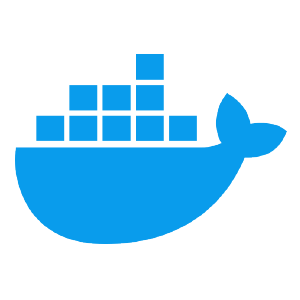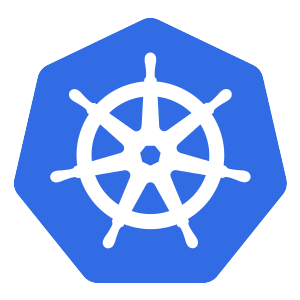Scaling with the OPC Router
The importance of Industry 4.0 has led to an extraordinary growth in data and information generated by various systems and devices in real time. Managing this volume of data requires a highly scalable infrastructure that can process both the quantity and variety of data in a targeted manner.
Such an architecture creates the basis for agile and future-proof production. It makes it possible to dynamically adjust capacities, react to market demands more flexible and quickly adapt to new business models.
We explain how you can scale platform-independently with the OPC Router, which marketplaces and platforms you can use for your OPC Router use cases and how you can ensure reliability and high availability with the OPC Router.
The right system architecture as a basis
In industrial manufacturing companies, there are numerous different areas that often have complex interdependencies and processes. When it comes to the seamless exchange of important data, these dependencies can bring risks with them.
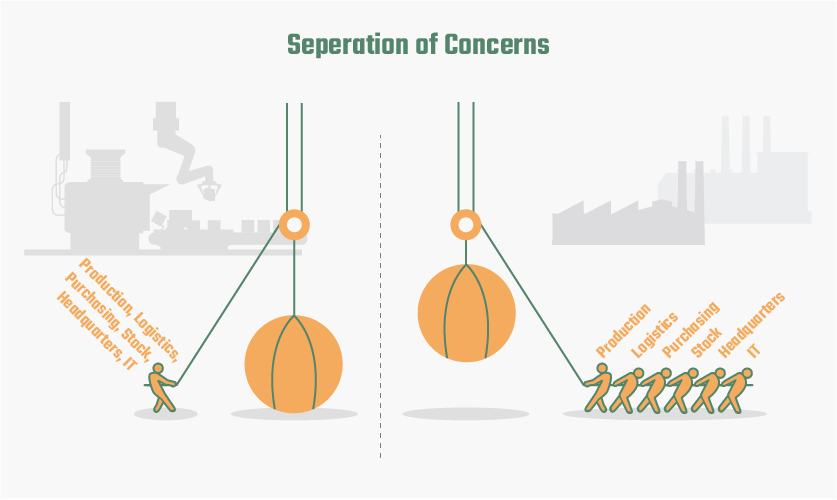
The concept of “Separation of Concerns” is gaining importance here: it refers to clearly defining and separating the various tasks and responsibilities in order to enable a clearer structure and more efficient operation.
In this context, the OPC Router plays a crucial role as a communication platform by enabling reliable and secure communication between the various systems and areas. This enables companies to optimize their processes and minimize risks.
These and other customers rely on the OPC Router





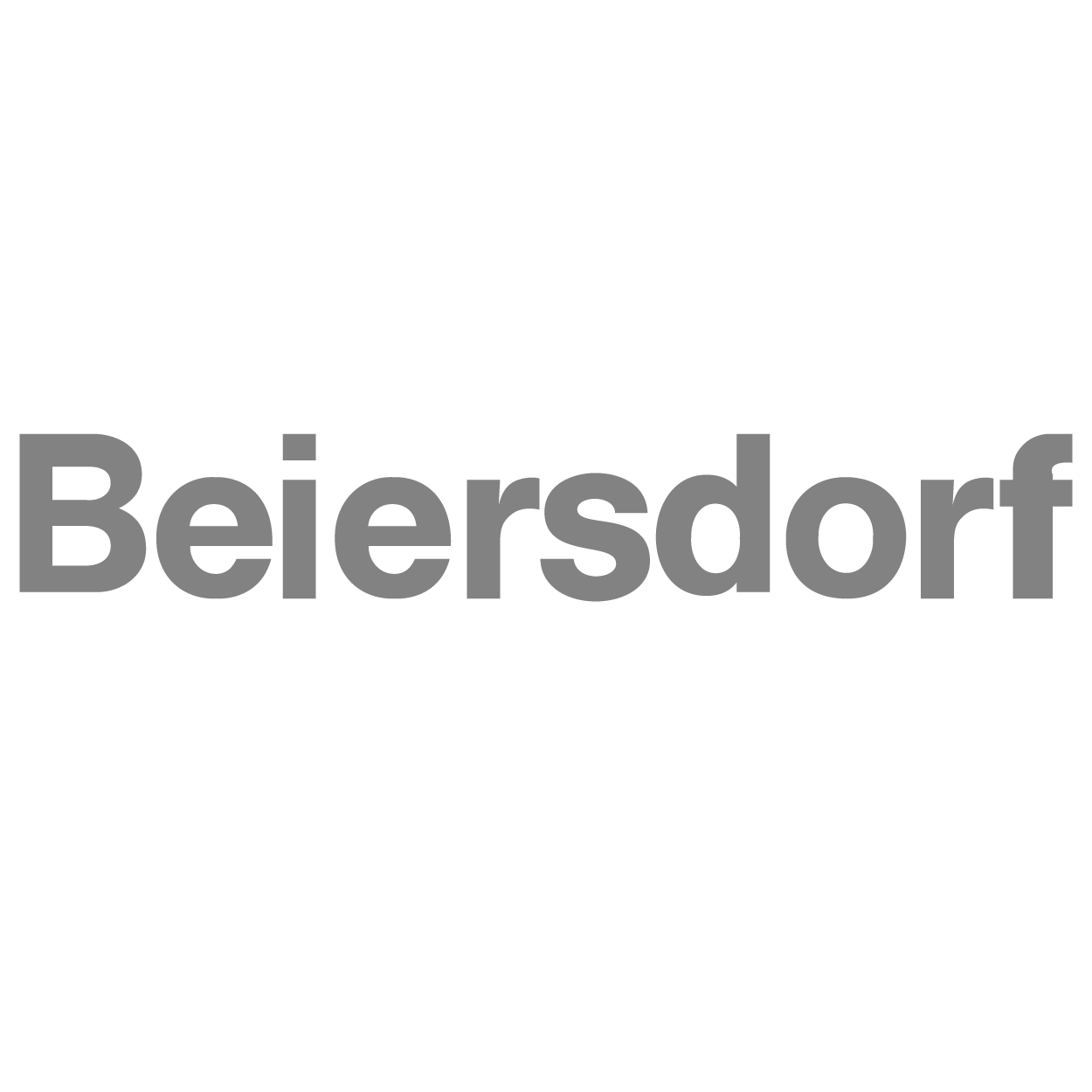
Platform independent scaling
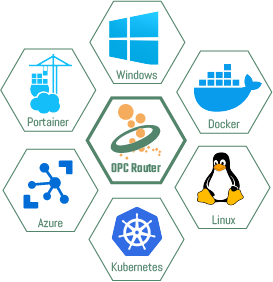
The OPC Router supports various platforms, technologies and marketplaces. This makes the OPC Router a key component for companies that want to scale their production environment.
Different platforms and technologies play a significant role in building a sustainable digitalization strategy. In addition to building a system structure with Windows, innovative technologies such as Docker offer a powerful way to scale your digitalization projects. With other technologies such as Portainer and Kubernetes, companies can roll out their projects company-wide or even group-wide with just a few clicks. This gives companies the opportunity to scale and manage their applications and workloads very efficiently.
Platforms:
Marketplaces
The OPC Router is available on various marketplaces, giving you a new level of flexibility. By being present on these marketplaces, the OPC Router opens up new ways to
- provide the right data for your production,
- optimize your industrial processes,
- increase the efficiency of your business and
- create seamless connectivity between your systems.
In addition to the benefits of easy implementation and comprehensive support, you can also use the OPC Router via the marketplace of your choice exactly where it offers the greatest added value for your company.
OPC Foundation Marketplace

The OPC Foundation Marketplace is a central platform for OPC-compatible products and services that offers users simplified access to validated, interoperable solutions for secure and efficient industrial communication. As a long-standing member of the OPC Foundation, the OPC Router manufacturer inray is significantly involved in the continuous further development of the OPC UA standard, which is essential for industry. Here you can find all relevant product details about the OPC Router in the OPC Foundation Marketplace.
Azure Marketplace
 The Azure Marketplace serves as a central hub for cloud solutions. It provides access to a wide range of proven applications and services to increase efficiency, accelerate innovation cycles and reduce the complexity of technology integration. Read here how to set up the OPC Router on an edge device via the Azure Marketplace.
The Azure Marketplace serves as a central hub for cloud solutions. It provides access to a wide range of proven applications and services to increase efficiency, accelerate innovation cycles and reduce the complexity of technology integration. Read here how to set up the OPC Router on an edge device via the Azure Marketplace.
Docker Hub
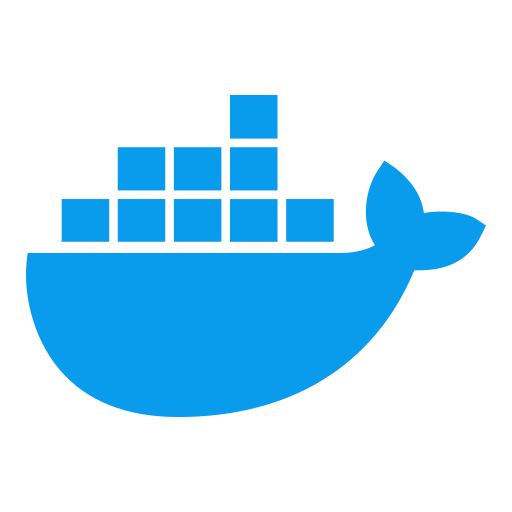
The Docker Hub serves as a comprehensive platform for container images, providing developers and organizations with quick access to a broad library of official and community-generated applications to simplify and accelerate application deployment and management. Check out our guide on how to set up the OPC Router in Docker Container.
Siemens Industrial Edge

Siemens Industrial Edge is an open, ready-to-use computing platform which makes data and software handling on the shopfloor scalable, secure, and easy to use. The Industrial Edge Ecosystem comprises edge applications, edge connectivity solutions and edge devices, both from Siemens and third parties, that can be centrally managed, monitored and updated. Follow our step-by-step instructions for installing the OPC Router on the Siemens Industrial Edge.
Reliability and high availability
Reliability and high availability of all systems involved in the production process are crucial. They minimize downtimes and guarantee continuous production. This prevents missed delivery deadlines and financial losses. If companies neglect to invest in reliability and high availability, they expose themselves to the risk of production downtime, data loss and ultimately the loss of market share to competitors. Particularly in the face of competition and rising customer expectations, continuous production capability is essential for a company’s success.
Considering vertical dependencies
In industrial companies, vertical dependencies between different production levels form a complex challenge. Reliability and high availability are crucial for trouble-free operation.
The OPC Router plays a decisive role here. It ensures robust and flexible data communication between the individual systems. It seamlessly integrates the vertical levels of production – from the field level to the company level – and thus ensures a continuous and independent flow of information from level to level, even under demanding conditions.
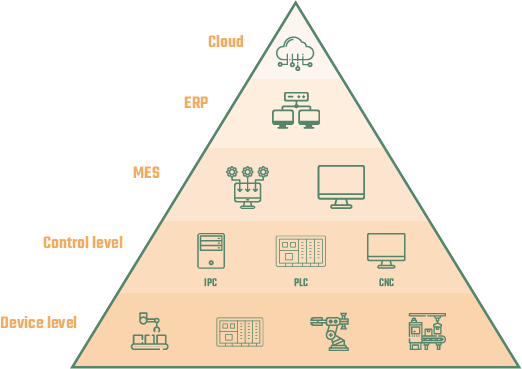
To avoid critical dependencies, the OPC Router can be used for any system at any level. In certain applications, it may also be advisable to set up parallel communication with several OPC Routers. This increases resilience to failures and ensures efficient and effective production.
We would be happy to help you consider the various options you have with the OPC Router to ensure reliable and highly available production in your company. We will check with you which concept best suits your needs and requirements and will be happy to advise you. Simply contact us by telephone on +49 4892 89008 160 or send us a message.
Considering horizontal dependencies
In companies where horizontal dependencies characterize the connection between different production lines and departments, ensuring reliability and high availability is crucial for an efficient process chain. The OPC Router offers a central solution for this by connecting machines, systems and applications across departmental boundaries and thus enabling synchronized operation, which is essential for maintaining a continuous production flow.
The OPC Router ensures this continuous production flow by using a redundancy concept to ensure stable and fail-safe process chains. This means that several individual OPC Routers can be used for important processes, eliminating horizontal dependencies. This means that a process chain is no longer dependent on a single component, but also functions even if individual systems fail.
We would be happy to advise you on how you can minimize the risk of bottlenecks and failures in your company and optimize the overall efficiency of your company by using redundant OPC Router concepts. Please contact us by telephone on +49 4892 89008 160 or send us a message.
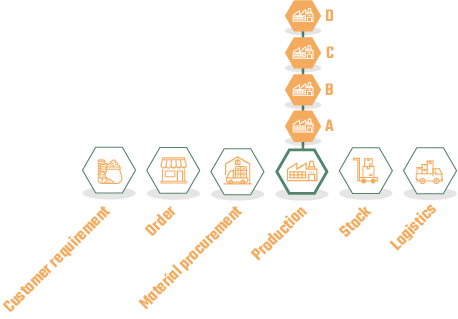
OPC Router Add-ons: Store & Forward and Redundancy
Prevent data loss with Store & Forward

If recipients are temporarily unavailable or database requests cannot be transmitted quickly enough, the OPC Router records all of this data and stores it temporarily. In this way, data from unstable and non-time-critical communication channels that do not expect a response to be processed can be stored locally and subsequently transmitted when communication is restored. More about the OPC Router Add-on Store & Forward >>>
More reliability with the Redundancy Add-on
 The OPC Router Add-on Redundancy ensures reliability by automatically taking over functions between two OPC Routers running in parallel in case of a one-sided failure. This ensures that the functions remain highly available in the event of an OPC Router failure. Business-critical applications continue to be made available in this way, as the second OPC Router takes over the tasks of the first OPC Router fully automatically in case of a breakdown. More about the OPC Router Add-on Redundancy >>>
The OPC Router Add-on Redundancy ensures reliability by automatically taking over functions between two OPC Routers running in parallel in case of a one-sided failure. This ensures that the functions remain highly available in the event of an OPC Router failure. Business-critical applications continue to be made available in this way, as the second OPC Router takes over the tasks of the first OPC Router fully automatically in case of a breakdown. More about the OPC Router Add-on Redundancy >>>
From use case to an enterprise business solution
Client server architecture or Docker deployment?
Both approaches to a system structure – whether the classic client server architecture or the innovative approach with Docker containers on edge devices – have their advantages and disadvantages. It is essential that the system structure matches your requirements and your business objectives. With the OPC Router, you can implement projects ranging from a single application to a large corporate solution, all individually tailored to your needs and requirements.
Scaling in a classic client server architecture
The classic client server architecture is firmly established in the industry and offers numerous possibilities that have proven themselves many times over in industry. The OPC Router is very well suited to this area of application and offers a wide range of options for setting up a scalable infrastructure. This includes the option of exporting finished connections and importing them into other OPC Routers. You can also access connection templates so that existing templates can be used when connecting additional machines. Let our team advise you. Together we will find the right solution for your digitalization strategy. Call us on +49 4892 89008 160 or contact us via our contact form.
Docker deployment on edge devices
We are noticing that more and more conventional client server structures are being replaced by Docker containers on edge devices in order to take advantage of the platform- and manufacturer-independent Docker technology. The biggest advantage of edge computing is the IT/OT coupling directly at the machine: the machine data is stored, analyzed and retrieved directly at field level without any further transmission paths, resulting in minimal latency times. This leads to faster availability and usability of data and thus contributes significantly to the scaling of your applications.
Docker Hub

The Docker Hub serves as a comprehensive platform for container images, providing developers and organizations with quick access to a broad library of official and community-generated applications to simplify and accelerate application deployment and management. Check out our guide on how to set up the OPC Router in Docker Container.
Portainer

Portainer transforms container management through its intuitive user interface that enables developers and system administrators to manage Docker and Kubernetes environments with ease. This platform simplifies complex technologies and makes them accessible to teams of all sizes and experience levels. Request the webinar recording from our tutorial stream, in which we show you together with Portainer how to roll out OPC Router projects to 50 machines with just a few clicks.
Kubernetes
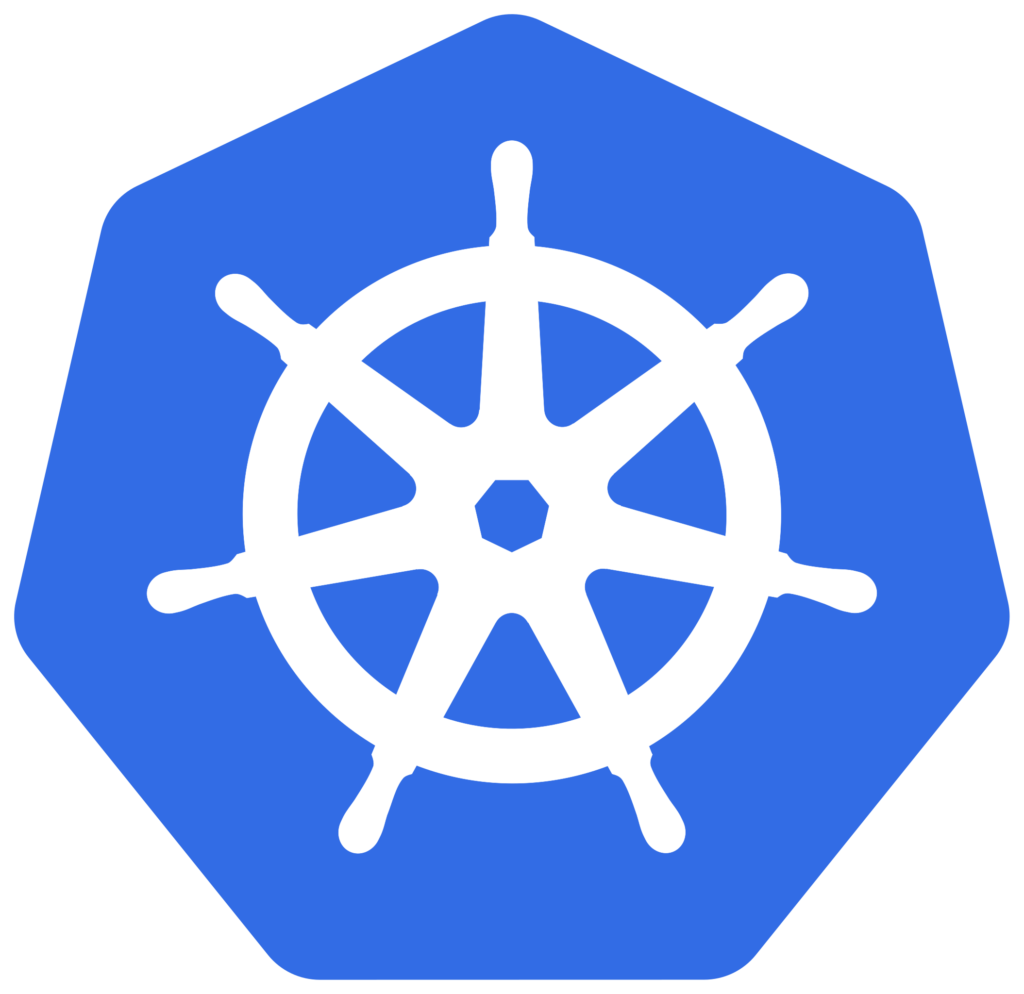
Kubernetes revolutionizes container management by providing automation, scalability and efficiency in the deployment and operation of applications. Automated container orchestration can increase resilience and optimize resource utilization, resulting in increased operational efficiency and reduced costs.
We support you in setting up your scalable infrastructure.
Send us a message using our contact form. We will be happy to support you with your individual request.



